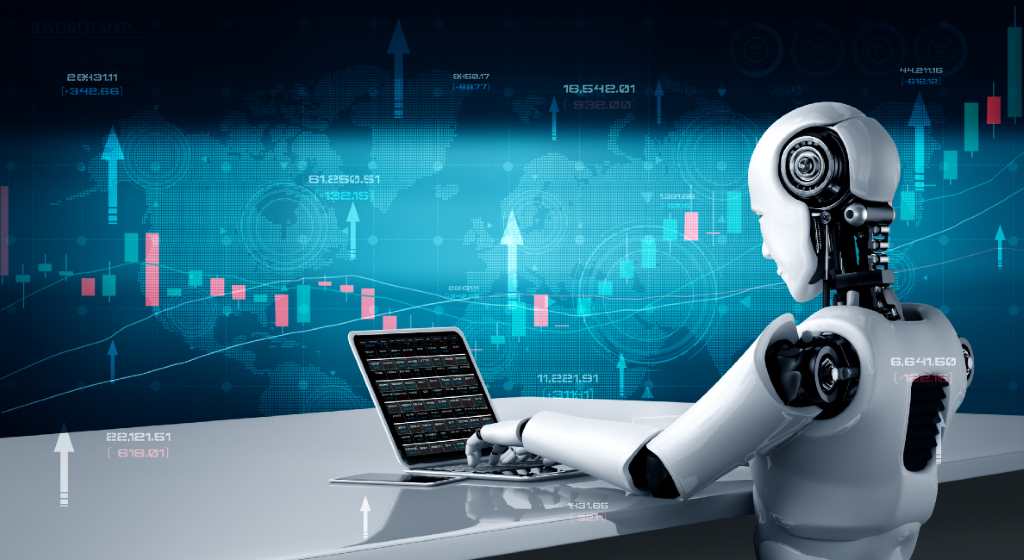Investing has traditionally been seen as a realm dominated by human intuition, experience, and decision-making. However, with advancements in technology and the rise of artificial intelligence (AI), machines are increasingly being used for investment decisions. Here are six compelling reasons why machines might have an edge over humans in the realm of investing:
- Data Processing and Analysis
Machines excel at processing vast amounts of data quickly and efficiently. In the world of investing, this capability is invaluable. AI-powered algorithms can analyze financial statements, market trends, news articles, social media sentiment, and more, all in real-time. This comprehensive data analysis allows machines to identify patterns and correlations that human investors may overlook, enabling more informed investment decisions.
- Elimination of Emotional Bias
One of the biggest challenges for human investors is emotional bias. Fear, greed, and overconfidence can cloud judgment and lead to irrational investment decisions. Machines, on the other hand, operate based on predefined algorithms and data-driven models. They do not experience emotions or fatigue, which allows them to make objective decisions consistently. This emotional detachment often results in more disciplined and rational investment strategies.
- Speed and Efficiency
In today’s fast-paced financial markets, speed is crucial. Machines can execute trades within milliseconds, reacting swiftly to market fluctuations and news events. This speed advantage not only allows for timely execution of trades but also enables automated strategies such as high-frequency trading (HFT) that capitalize on small price discrepancies. Human investors simply cannot match the speed and efficiency of automated trading systems.
- Risk Management and Diversification
Effective risk management and portfolio diversification are key principles of successful investing. Machines excel at managing risk by continuously monitoring portfolios and adjusting allocations based on predefined risk parameters. AI algorithms can identify potential risks and correlations across asset classes, helping to mitigate downside exposure. Moreover, machines can manage diversified portfolios across multiple asset classes and geographical regions more effectively than human investors, ensuring a balanced and resilient investment strategy.
- Adaptability and Learning
Machine learning algorithms can adapt and improve over time. By analyzing past investment data and outcomes, machines can learn from their mistakes and refine their strategies. This adaptability allows AI-powered systems to evolve and optimize performance continuously. In contrast, human investors may be limited by cognitive biases and past experiences, making it challenging to adapt quickly to changing market conditions.
- Scalability and Accessibility
Machines offer scalability that human investors cannot match. Automated investment platforms and robo-advisors allow individuals to access sophisticated investment strategies and portfolio management services at a fraction of the cost of traditional financial advisors. This democratization of investing enables retail investors to benefit from the same advanced technologies and strategies previously available only to institutional investors.
Where Humans Lack Compared to Machines
- Limited Processing Power: Human brains have a finite capacity to process and analyze complex data compared to machines, which can handle large datasets and computations effortlessly.
- Emotional Decision-Making: Humans are susceptible to emotional biases, such as panic selling during market downturns or excessive risk-taking during booms, which can lead to suboptimal investment decisions.
- Reaction Time: Machines can react to market changes in real time, executing trades swiftly based on predefined criteria, whereas human response times may be slower, potentially missing lucrative opportunities.
- Consistency and Discipline: Machines adhere strictly to programmed algorithms and parameters, maintaining consistent investment strategies over time, whereas human discipline may vary based on external factors or emotions.
- Bias and Subjectivity: Humans may exhibit cognitive biases, such as confirmation bias or anchoring, which can skew decision-making and lead to suboptimal investment outcomes compared to the objectivity of AI-driven models.
Conclusion
While machines offer several advantages over human investors in terms of data processing, emotional control, speed, risk management, adaptability, and accessibility, it’s important to note that they are not infallible. Human oversight and strategic decision-making are still crucial in guiding AI-driven investment strategies and interpreting complex market dynamics. Ultimately, a hybrid approach that combines the strengths of both human intuition and machine intelligence may offer the most robust investment outcomes.
As technology continues to evolve, the role of machines in investing is likely to expand further, transforming the landscape of financial markets. Investors and financial professionals alike will need to adapt to these changes and leverage technology effectively to navigate an increasingly complex and interconnected global economy.


